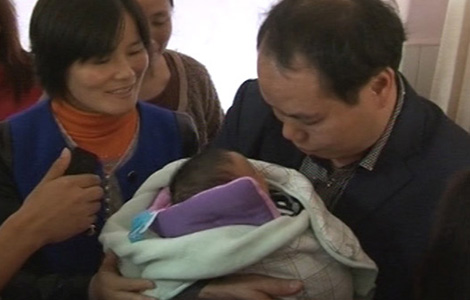International attention on future reform agenda for China
Updated: 2013-11-07 16:22
(chinadaily.com.cn)
|
|||||||||||
Economic and social progress is expected to dominate discussions at the Third Plenary Session of the 18th Central Committee of the Communist Party of China, the Party's key meeting that runs from Nov 9 to 12 in Beijing.
Expectations are high that the meeting will provide the future reform agenda for China and clear the decks for sustainable, balanced development.
The plenum draws great attention from international communities. Foreign observers provide their views on various issues during the process of China's reform.
On opening up
Gregory Chin, associate professor of political science at York University in Toronto
"It will be essential for China to play a constructive role, and more robust role, in helping to ensure that the world evolves toward a more sustainable, fair, stable and safe global environment."
Glyn Ford, a former member of the European Parliament
"China should open up more economically, especially in sectors such as telecoms, banking and finance, make the renminbi one of the three global reserve currencies, exert its rightful weight in the international forums and build bilateral trading relations with key global players."
Alex Kirby, a retired BBC journalist
Kirby says China has a huge contribution to make to global systems. On climate change, it is already providing an example by doing what is in its own interest (decarbonizing its economy). "This makes it harder for other countries to resist adopting similar policies, and that benefits the whole planet," Kirby says.
Martin Schoenhals, a professor at Columbia University in New York
Schoenhals feels that China should not follow the path trod by other powers such as the US as it would lead to aging infrastructure and lack of sufficient social services for people, since most of the money ends up being used for military purposes.
Duncan Freeman, senior researcher at the Brussels International Institute of Contemporary China Studies
Freeman feels that the global situation and China's position in it has changed since the late 1970s and the level of global interdependence between China and the rest of the world is now far greater.
"China is more integrated into global policymaking, but the greater interdependence means that expectations and demands on China from the outside world have also increased.
"China can no longer act in isolation, and this greatly increases the complexity of policymaking, even if the priority remains domestic development."
Today's Top News
China, India, Russia seek co-op on int'l issues
Man attacks 2 foreign students with hammer
Vaccine switch to prevent paralysis
Suspect arrested in 3 children's murder
SOE reforms to be launched after plenum
'Singles Day' to see big spenders
Launch zone challenges
European satellite continues fall to Earth
Hot Topics
Lunar probe , China growth forecasts, Emission rules get tougher, China seen through 'colored lens', International board,
Editor's Picks

|

|

|

|

|

|





